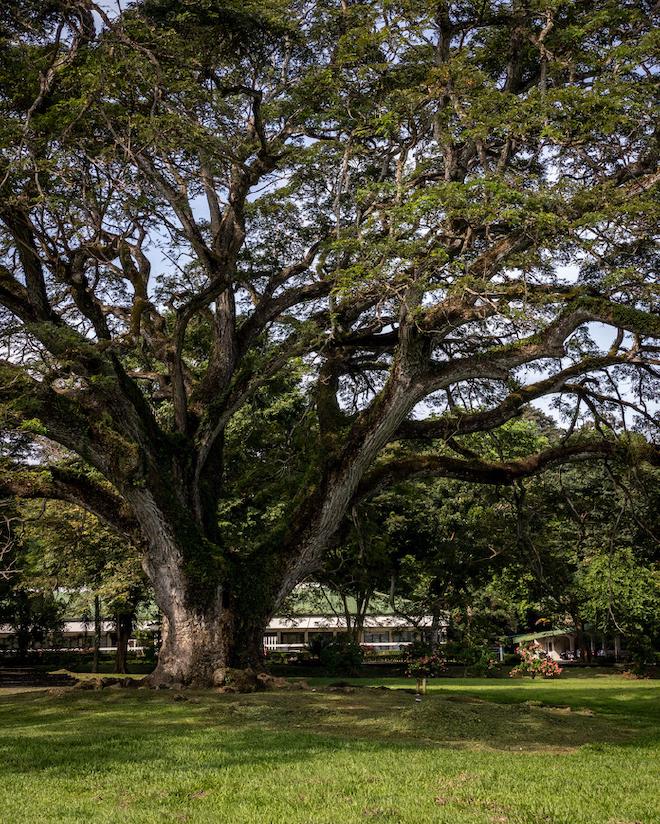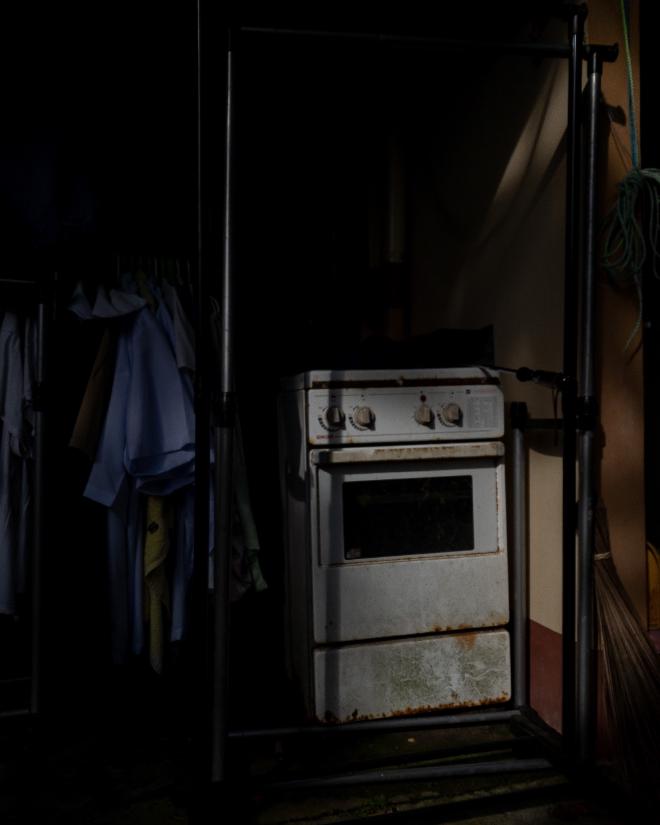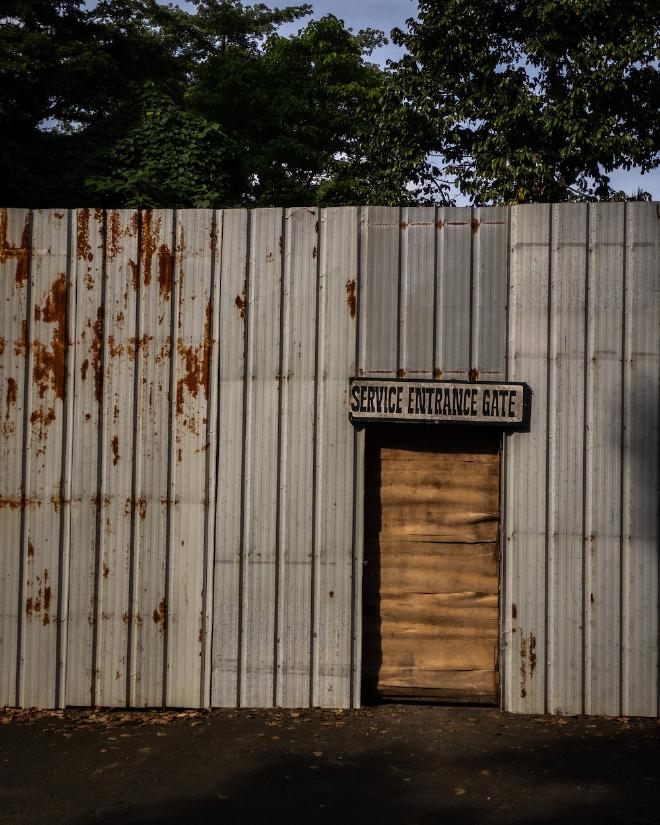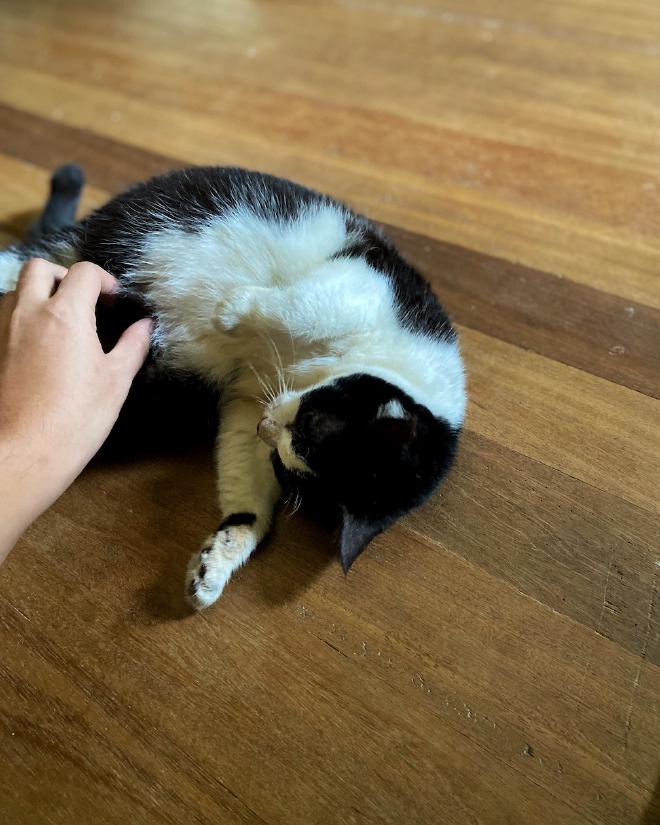The Inward Morning

Table of Contents
Exultation is the going Of an inland soul to sea, Past the houses — past the headlands — Into deep eternity —
— Emily Dickinson
Welcome back, fellow saunterer. Thank you, thank you, for gracing me once more with your presence! After the first issue was sent last Sunday, a few more joined us. My heart is full. Welcome, welcome!
If you are reading this newsletter for the first time, I encourage you to check [[a philosophical family tree|the inaugural issue]]. That issue sets the stage for this second issue and all future issues, providing a brief introduction to my life and an explanation of the rationale behind this newsletter’s format.
If reading another issue on top of this is a big choir (it is!), here’s the shorter version:
I am Vince Imbat, an ex-young pastor turn philosophy aficionado who loves to walk. This newsletter is The Long Walk, a weekly missive that shares artifacts I find in my walks—in geographic space and in what I call “the forest garden of my mind.” The newsletter mimics the rhythm of a walk, chronologically featuring “footprints” I leave throughout my studies and contemplations from Monday to Saturday. These footprints serve as archetypes for anyone in their own independent philosophical and contemplative journey.
For many of you, this is our second week walking together. The outdoors is waiting. There is a lot to cover. So wear your best footwear and bring some water. Let us begin to follow the footprints of the previous week’s walk.
The Long Walk: October 10 to 15, 2022 #
October 10, Monday #
Have I told you about [[henry bugbee]]? Oh, you must know about Henry Bugbee. We both share a love of [[henry david thoreau]], and among all the candidates for being Thoreau’s heir, I think he is the closest, at least in terms of resonance. [[annie dillard]] could be the closest modern Thoreau in terms of writing style (she’s the only one I’ve read who could really pull it off!). But Bugbee’s life is closer to Thoreau, and for me, that is more important.
Bugbee, like Thoreau, was committed to a philosophical-spiritual life. He is a “professional philosopher” trained in the academe (unlike Thoreau, who was largely self-taught). And yet he saw philosophy like Thoreau did. To him, philosophy was not an impersonal discipline preoccupied with arguments and opinions. He saw philosophy as an exploration of his life in the context of other lives and sentient beings in nature.
Living philosophically to him took prior importance over professional success, and because of that, he was denied tenure at Harvard. His philosophical life rejected the publish-or-perish aphorism of the academe. He refused to write strictly academic essays and was never interested in treating his writing like a conveyor belt, a model that most of his peers followed. In fact, this is an area where he clearly surpassed Thoreau. If Thoreau published very little (just two books and a few works published posthumously), Bugbee almost published nothing. His only book was [[the inward morning bugbee|The Inward Morning]], a relatively obscure book that presents Bugbee’s philosophical thoughts in journal form. What did he do when he was not writing? Well, living, of course.
For the past two months or so, I have been reading The Inward Morning intermittently, writing my summary with a few commentaries for each entry. The Inward Morning is not the easiest book to read and so I tried my best to translate Bugbee’s thoughts in a more palatable form in my commentaries.
In his entry, dated September 27, 1952 (the entry I read on this day), Bugbee meditated on the role of faith in philosophical reflection. Here is a sample of my commentary on this entry:
In this entry, Henry Bugbee directly responds to [[Gabriel Marcel]]. He returns to the subject of [[faith]]. He begins by stating that faith (i.e., openness or trustingness) is as important in ethical reflection as in action. Philosophical truth, he claims, arrives to the present from the past via reflection. But this arrival requires faith on the possibility of realization because philosophical truth, the meaning of one’s past experiences, comes involuntarily like insight ([[insight cannot be predetermined]]). We do not control its arrival artificially. We can only wait and trust (i.e., have faith) that it will arrive.
[[The Inward Morning Commentary 1952-09-27|Read the entire entry here]].
October 11, Tuesday #
I continued reading The Inward Morning. In his entry written on September 28, 1952, Bugbee presented a critique of the statement “believe in order to understand.” He says that this statement invites dishonesty as it presupposes that we can believe in something we do not understand. He seems to suggest that belief cannot be used to achieve something (i.e., understanding). If anything, belief or faith is a place where we arrive, not a vehicle we use to arrive at something. After understanding everything and noticing that our knowledge can only get us to a point, we call upon faith. Faith is surrendering to mystery.
This entry is the most difficult to understand among all the entries I’ve read so far and I won’t be surprised if my interpretation was wrong. Also, I honestly felt a little uncomfortable reading about faith among other of Bugbee’s choice of topics. Faith is a topic I have avoided ever since leaving my childhood religion and contemplating it brings up difficult memories. That said, as I grow into my philosophical walk, I see that there are philosophical questions we will never truly answer and an important task of anyone who is called to nurture a friendship with wisdom is to acknowledge this the soonest. Such humility will save one from heartache and will guide one into finding the mysteries that truly exist. I think faith is inevitable.
In the evening, I walked among the large palm trees at UPLB. I wrote these words on my digital note-taking app:
I fancy these large trees. When I see them together like standing giants. I feel in awe. Astounded. Like silent watchers of the paths.
October 12, Wednesday #
Hoping to establish some continuity in my days, I persevered into reading The Inward Morning. Bugbee’s September 29 entry was about what is essential to a person’s life. He mentioned in a previous entry that the realization of what is essential to us comes unexpectedly, usually in the middle of our normal routines. What is essential to one human, therefore, is subjective, as it may not be what is essential to another.
Here lies a problem: how is sympathy possible in a world where people have different and often conflicting essentials? Bugbee says that our ability to know what is essential to us also means we have the ability to perceive what is essential to others. This opens the door to sympathy. He further claims that a universal need—the need to commune with others—is enough to establish the foundation for fellow feeling.
The rest of his entry is a thought-provoking meditation on the relationship between the individual and the collective, one of my favorite philosophical problems. Here’s a quote from Bugbee himself:
Perhaps we are only truly individual in so far as we are able to acknowledge and act upon a universal significance in our lives which is the very opposite of divisive in its import for our relations with other persons.
This reminds me of [[scott barry kaufman]]’s insight in his book [[transcend kaufman]]: We self-actualize so that we eventually transcend, a state where we forget ourselves and our communion with the interconnectedness of everything and everyone takes center stage.
In the afternoon, I re-read my past nature journal entries, entries I wrote when I tried emulating Thoreau’s writing routine. His routine went this way:
- He took long walks in the afternoon, possibly right after lunch until early evening (sometimes later). He wrote brief notes about what he noticed around him while he walked.
- The following morning, he would go back to his notes and expand them into journal entries.
- He repeated this from 1850 until he died in 1861 (a total of 11 years).
I was only able to sustain this routine for a couple of weeks. I was not my hero, but it was a great experiment, and reading those entries now makes me realize I actually enjoyed those days a lot. Expanding the entries was difficult, yes, but the method really elevates the quality of the day and aids a lot in reflection. I go back and reread those entries now and I see each day as clearly as when I experienced them. With that clarity comes the opportunity to extract some useful truth from them.
Here are two of my best entries:
- [[2020-10-08 seeds]]
- [[thoughts/2020-10-10 seeds]]
- [[2020-10-15 seeds]]
- [[2020-10-18 seeds]]
- [[2020-10-19 seeds]]
Inspired by reading my past nature journal entries, I tried writing brief notes of observations during my walk that evening: [[2022-10-12 seeds]].
October 13, Thursday #
Curious to see if I could improve the quality of my walks, I decided to try a morning walk for a change. I left the house at around 7:30, which, I discovered, provides one of the best lights you will ever catch in Los Baños, so I took a few photos while on the walk, something I haven’t done for a while.
I stopped on a bench for a while to enjoy the cold breeze that blew from behind me. After a few minutes, I continued walking until I reached the Fertility Tree at Freedom Park (the featured photo for this newsletter). Under the tree, I journaled about how this morning’s walk made me feel at home in Los Baños again. I wrote that perhaps it is not a change of location that I need but a change of routine. I also continued reading The Inward Morning and wrote my commentary on Bugbee’s October 2, 1952, entry. In this entry, Bugbee talks about Socrates and how the power of his thought lies not in his induction but in the ability of his inquiry to return us to ourselves. Bugbee also commented on Socrates’ idea of the examined life and its value. You can read my entire commentary on the website.
As if I needed more walking, my partner and I walked in the evening, under a bright moon after the new stray cat we adopted was spayed. We sat on one of the benches at Freedom Park. What ensued was her sharing of a podcast show she was currently listening to about a couple who left Christianity. This is my partner’s current process, which is something I went through in 2012 (more than a decade now!). Listening to her made me realize how much trauma we could carry just by being brought up in a religious household. A question revisited me: Is the parent’s role to mold the child to be who she wants him to be or to support the child to become who he wants to be?
October 14, Friday #
In the previous issue, I shared that I am currently reading the book [[living philosophy mooney|Living Philosphy in Kierkegaard, Melville, and Others]] by [[edward mooney]]. Mooney is a student of Henry Bugbee, and I am currently reading him as the focal point from where I shall trace my philosophical family tree.
The book is a delightful collection of essays, relatively short in length, poetically delivered, and yet philosophical in the subject. I love this word Mooney uses—living philosophy. Here’s how he defines it:
“Living Philosophy” in my title has a double sense. We have philosophy that’s conveyed as a dramatic living narrative. And second, we have a spectrum of persons who in various ways are living out their philosophies.
I am realizing these days that, while I think analytic philosophy is extremely important and necessary, my talents fit a brand of philosophy that is closer to the arts than the sciiences. A living philosophy—this is what I am intent in studying more about.
October 15, Saturday #
This entire day, I did a mind walk on the life and works of the poet [[rofel brion]].
In the Philippines, poetry that feels good, the kind that primarily speaks to that speechless, inarticulate part of us, is very rare. It has almost no advocates in the academe, and that is why we are so lucky to have someone alive and still kicking to serve as a beacon of this way of writing poetry who is as embedded in the academe as he is outside.
I knew Rofel Brion through my friend who first discovered his book at a book fair and who has since talked to him via Zoom. I connected to Rofel through Facebook and luckily got an invite for the launch of his new book of vignettes called Saglit: Alaala’t Muni, which happened today.
To prepare for the launch, I re-listened to his podcast interview with Kevin Chan. If you have a single link to click in this newsletter (and you also write poetry), this should be it. Rofel’s philosophy of “not taking your writing seriously” is a refreshing and much-needed perspective in a world that valorizes creative production. It frees me as it resonates well with the things I am learning about writing from Bugbee and Thoreau.
To experiment with a Rofelian style of poetry (what he calls “mala-haiku” or “haiku-like”), I wrote a poem, which I translated into Filipino. A friend, GP Roperos, then translated it into Spanish. Here is the poem in three languages:
RESTS
I long for the moments when you sprawl beside me and I stroke the white fur of your belly as you purr in delight.
MGA PAHINGA
Inaasam ko ang mga sandaling humihilata ka sa tabi ko at hinahaplos ko ang puting balahibo ng tiyan mo habang humuhuni ka sa galak.
DESCANSOS
Siempre deseo que te acuestes al lado de mi y tocaria el pelo blanco de tu vientre mientras ronronearias con gran deleite.
I went home that night, with Rofel’s new book in my bag and a handful of new seeds of thoughts to write about in the following days.
Here is a distinguished poet whose main audience, after himself, was his family, friends, and people he has touched in his life. Rofel writes about and for people whose faces he knows and whose names he can recall. (Listen to the podcast interview I beg you, and discover a new way of doing art.)
I went home that night—and I remembered you, you who are reading this newsletter right now. All of you. Some, I know by name. Some, I know their faces. But about half are still faceless strangers. I asked myself, what can we do to change that?
Well, of course, to ask you to introduce yourself.
Before You Go #
I want to know your name, where you are from, and what you do these days. What philosophical or contemplative interests do you have? Please reply to this email or comment on the public post. And if there is anything that resonated with you from this week’s walk—or any feedback—please don’t hesitate to share them. I will read and respond to everything. I am happy you are here.
Subscribe to my newsletter
Receive new poems, vignettes, and essays on a free, creative, inquiring, and liberative spirituality directly to your inbox. It’s free and you can unsubscribe any time.



